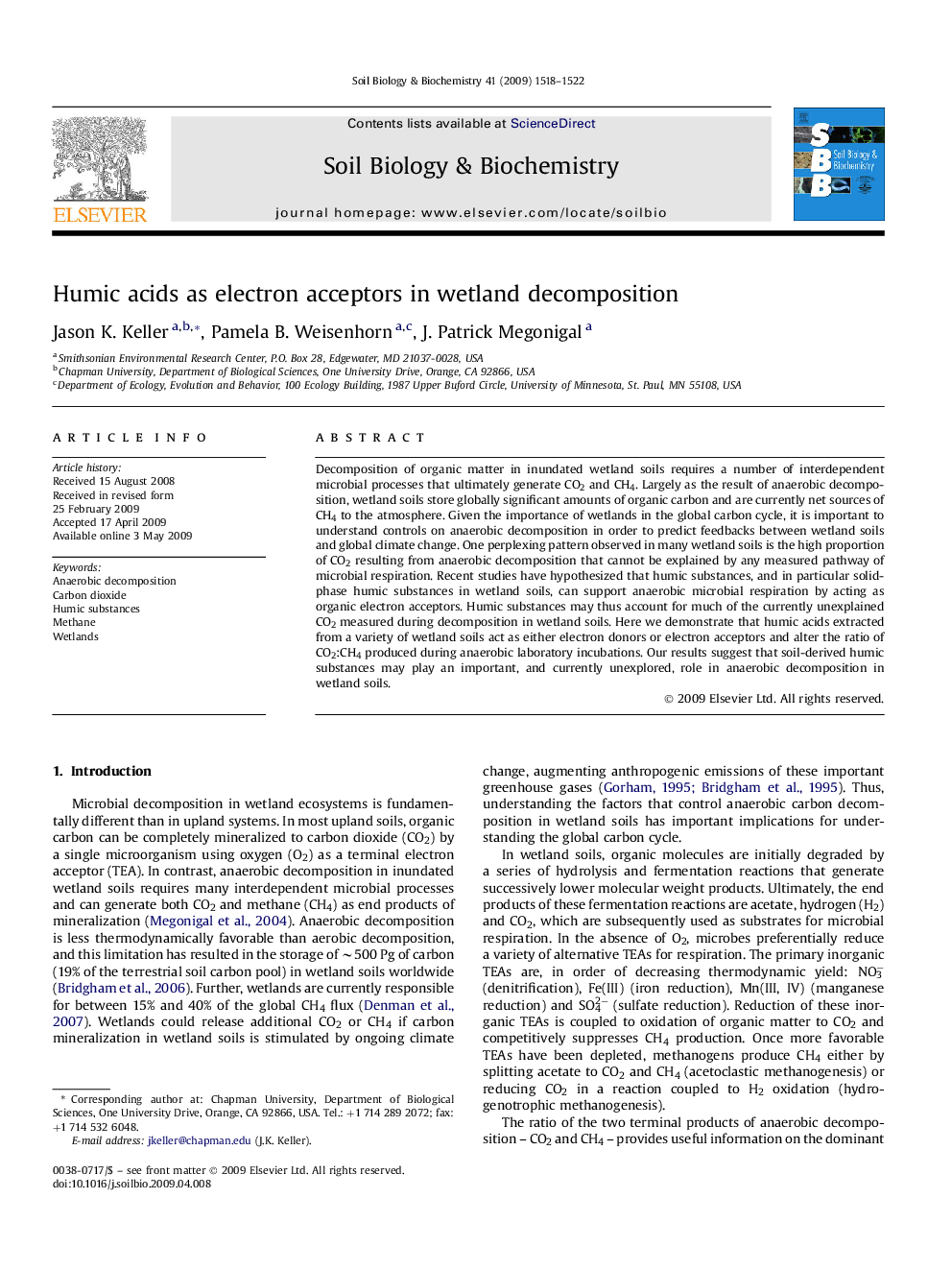| کد مقاله | کد نشریه | سال انتشار | مقاله انگلیسی | نسخه تمام متن |
|---|---|---|---|---|
| 2025216 | 1069988 | 2009 | 5 صفحه PDF | دانلود رایگان |

Decomposition of organic matter in inundated wetland soils requires a number of interdependent microbial processes that ultimately generate CO2 and CH4. Largely as the result of anaerobic decomposition, wetland soils store globally significant amounts of organic carbon and are currently net sources of CH4 to the atmosphere. Given the importance of wetlands in the global carbon cycle, it is important to understand controls on anaerobic decomposition in order to predict feedbacks between wetland soils and global climate change. One perplexing pattern observed in many wetland soils is the high proportion of CO2 resulting from anaerobic decomposition that cannot be explained by any measured pathway of microbial respiration. Recent studies have hypothesized that humic substances, and in particular solid-phase humic substances in wetland soils, can support anaerobic microbial respiration by acting as organic electron acceptors. Humic substances may thus account for much of the currently unexplained CO2 measured during decomposition in wetland soils. Here we demonstrate that humic acids extracted from a variety of wetland soils act as either electron donors or electron acceptors and alter the ratio of CO2:CH4 produced during anaerobic laboratory incubations. Our results suggest that soil-derived humic substances may play an important, and currently unexplored, role in anaerobic decomposition in wetland soils.
Journal: Soil Biology and Biochemistry - Volume 41, Issue 7, July 2009, Pages 1518–1522